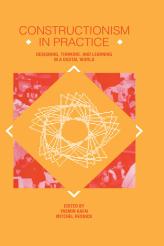 I’m reading this book. It’s hard, but it’s fun. I’m playing around with the ideas and it’s making me think a lot about teaching, learning, playing, and knowledge.
I’m reading this book. It’s hard, but it’s fun. I’m playing around with the ideas and it’s making me think a lot about teaching, learning, playing, and knowledge.
Play, making, exploring, inquiry-based learning, problem-based learning, project-based learning, maker spaces, and so on… these are all justifiable reactions against the arbitrary segregation of various subject matter in our curriculum. As teachers and learners, we know real knowledge is practical and personal and situated the very experiences that created the knowledge in the first place.
Disconnected knowledge is quickly forgotten. You probably remember the rooms you wrote your exams in better than what you wrote, right? Good teachers know that “learning by doing and making and playing” is not just a cliché; it is the essence of real, useful, practical, sticky knowledge. MIT has a graduate work group called the “Lifelong Kindergarten Group.” They’re on to something with that name.
Our precious early years of play should not give way to more and more so called “formal learning” or whatever euphemism you want to use. Sure, 7-year-olds will play with different things in a different way for different reasons than a 3-year-old, and a 9 or 12-year-old will play differently still.
I think the very essence of play is the process by which we, at any age, root our knowledge in experiences, and then connect new experience to our knowledge. I am playing right now as I write this. It’s fun; I am learning; I am sharing something I think is valuable; I am hoping to talk to people about these ideas; my new understandings will inform and guide my future interactions with students. It’s all interconnected and has value to me and is important to what I feel my purpose as an educator is. This isn’t an earth shattering idea but it is essential I think that we, as educators, embrace what play really is.
Play still has a negative connotation when applied, it would seem, to anyone other than a child. But play is a viable, defendable, powerful learning strategy useful at every age. I think educators are expanding our concept of play to include all things that we do that involve creating, making, designing, expressing, connecting, and growing.
I think all of the wonderful terms for strategies we are currently using – making, exploring, inquiry-based learning, problem-based learning, project-based learning, maker spaces, etc. – are just other ways of saying play and we are using them because we are expanding what play means and the role it has in powerful learning.
Great post Jim! Maybe it’s my painting & your music and photography that bring us to the same conclusions. So grateful to have shared our making / playing / creating over the last few years and grateful for you putting it into words!
Thanks for that, Debbie! I’m inspired every time I see your paintings and your openness to try out new things and play with ideas. Am also a bit in awe of your abilities and how prolific you are. Hope your year is off to a great start! Thanks again for your comment.